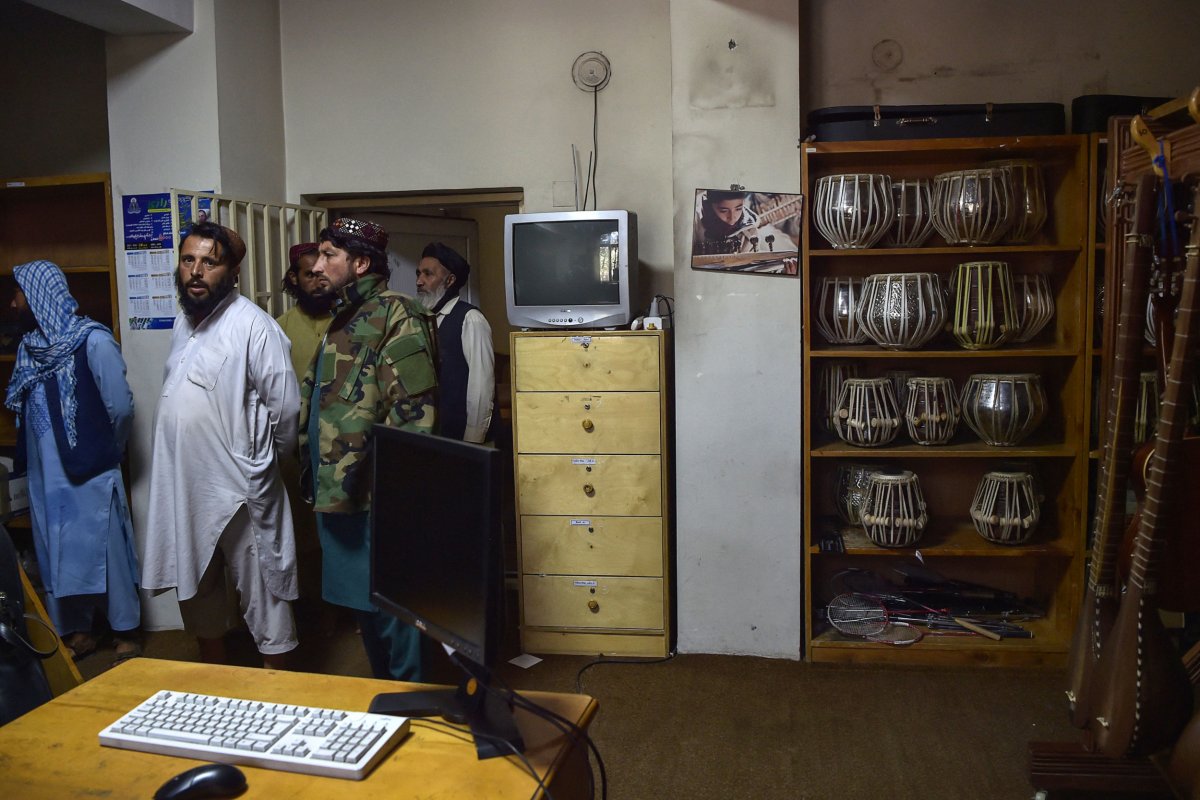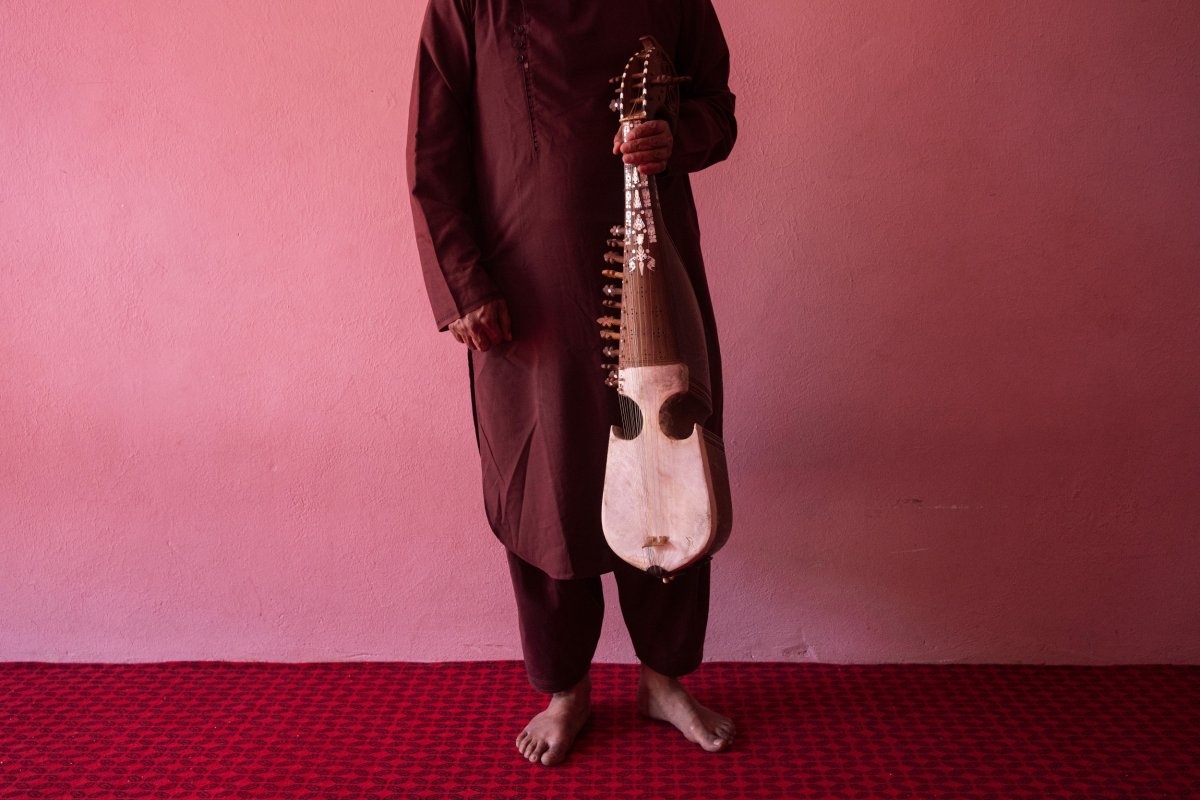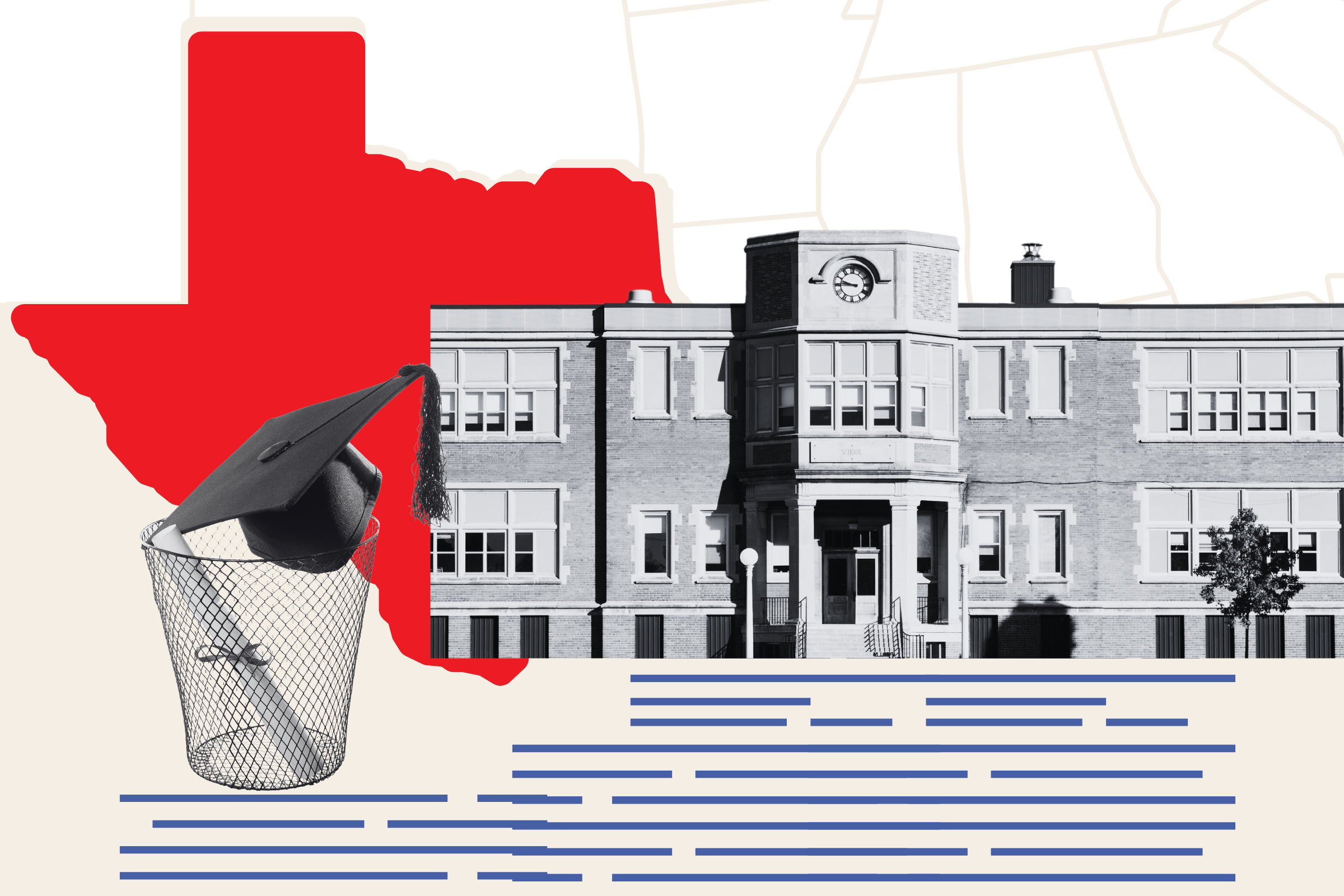The Taliban has been breaking instruments and ordering customers to leave karaoke parlors in the latest crackdown against activities not approved by the militant group now ruling Afghanistan.
In the 1990s, when the Taliban last ruled the country, music was outright banned. The Taliban-created government has not yet officially banned music, but some Taliban fighters have begun enforcing the rules on their own.
Some karaoke parlors have already closed, but others still open have faced harassment. One parlor visited by the Associated Press stopped karaoke but remained open, playing recorded music. Last week, Taliban fighters broke an accordion and tore down stickers and signs referring to music or karaoke. A few days later, they showed up again and ordered the customers to leave immediately.
There have been other reports of the Taliban breaking instruments, including one musician who said they broke a keyboard worth $3,000 when they saw it in his car as he crossed through a checkpoint. Others have tried to protect their instruments by hiding them or sending them to other countries.
For more reporting from the Associated Press, see below.

In the alleys of Kharabat, a neighborhood in Kabul's Old City, families where music is a profession passed through generations are looking for ways to leave the country. The profession was already hit hard by Afghanistan's foundering economy, along with the coronavirus pandemic, and some families now too fearful to work are selling off furniture to get by.
"The current situation is oppressive," said Muzafar Bakhsh, a 21-year-old who played in a wedding band. His family had just sold off part of its belongings at Kabul's new flea market, Chaman-e-Hozari. "We keep selling them ... so we don't die of starvation," said Bakhsh, whose late grandfather was Ustad Rahim Bakhsh, a famous ustad — or maestro — of Afghan classical music.
Afghanistan has a strong musical tradition, influenced by Iranian and Indian classical music. It also has a thriving pop music scene, adding electronic instruments and dance beats to more traditional rhythms. Both have flourished in the past 20 years.
Asked whether the Taliban government will ban music again, spokesman Bilal Karimi told The Associated Press, "Right now, it is under review and when a final decision is made, the Islamic Emirate will announce it."
But music venues are already feeling the pressure since the Taliban swept into Kabul on Aug. 15.
Wedding halls are usually scene to large gatherings with music and dancing, most often segregated between men's and women's sections. At three halls visited by the AP, staff said the same thing. Taliban fighters often show up, and although so far they haven't objected to music, their presence is intimidating. Musicians refuse to show up. In the male sections of weddings, the halls no longer have live music or DJs. In the women's section — where the Taliban fighters have less access — female DJs sometimes still play.
Many musicians are applying for visas abroad.
In the family home of another ustad in Kharabat, everyone's go-bag is packed, ready to leave when they can. In one room, a group of musicians was gathered on a recent day, drinking tea and discussing the situation. They shared photos and videos from their performances around the world — Moscow, Baku, New Delhi, Dubai, New York.
"Musicians do not belong here anymore. We must leave. The love and affection of the last years are gone," said a drum player, whose career has spanned 35 years and who is the master of a leading music education center in Kabul. Like many other musicians, he spoke on condition he not be named, fearing reprisals from the Taliban.
One who managed to leave already is Aryana Sayeed, a top female pop star who was also a judge on the TV talent show, "The Voice of Afghanistan." Already used to death threats by Islamic hard-liners, Sayeed decided to escape the day the Taliban took over Kabul.
"I had to survive and be the voice for other women in Afghanistan," said Sayeed, now in Istanbul. She said she was asking Turkish authorities to help other musicians get out of her homeland. "The Taliban are not friends of Afghanistan, they are our enemies. Only enemies would want to destroy your history and your music," she said.
At the Afghanistan National Institute of Music, most of the classrooms are empty. None of the teachers nor the 350 students have come back since the takeover. The institute was once famous for its inclusiveness and emerged as the face of a new Afghanistan. Now, it is guarded by fighters from the Haqqani network, an ally of the Taliban considered a terrorist group by the United States.
Inside the institute, pictures of boys and girls playing hang from the walls, dusty pianos rest inside locked rooms, and some instruments have been stacked in a container on the school's patio. The fighters guarding the site said they were waiting for orders from the leadership on what to do with them.
"We're not interested in listening to these things," one fighter said, standing next to a set of dhambouras, a traditional string instrument. "I don't even know what these items are. Personally, I've never listened to them and I'm not interested."

Uncommon Knowledge
Newsweek is committed to challenging conventional wisdom and finding connections in the search for common ground.
Newsweek is committed to challenging conventional wisdom and finding connections in the search for common ground.
About the writer
To read how Newsweek uses AI as a newsroom tool, Click here.








